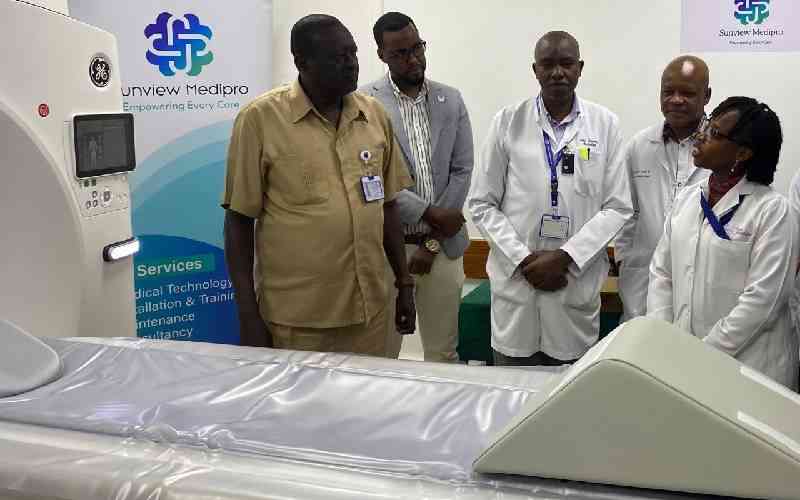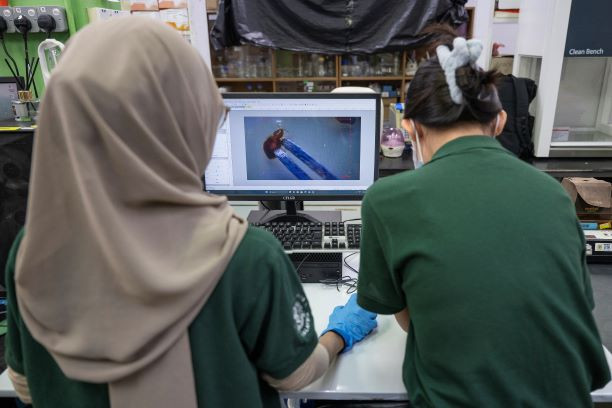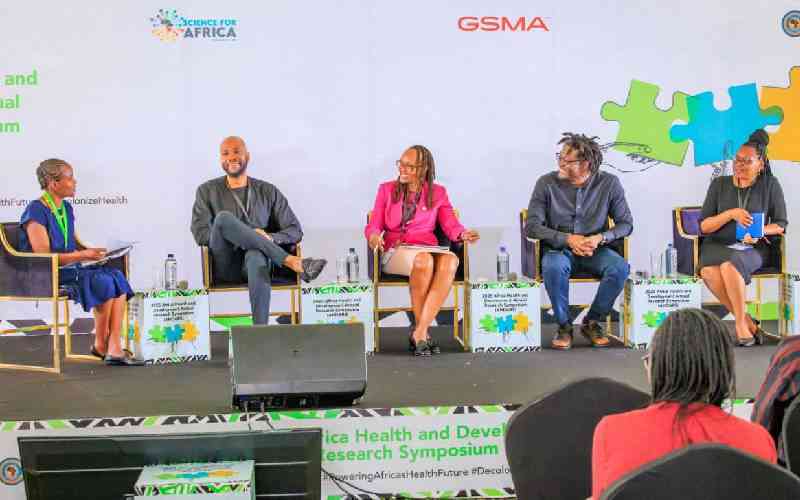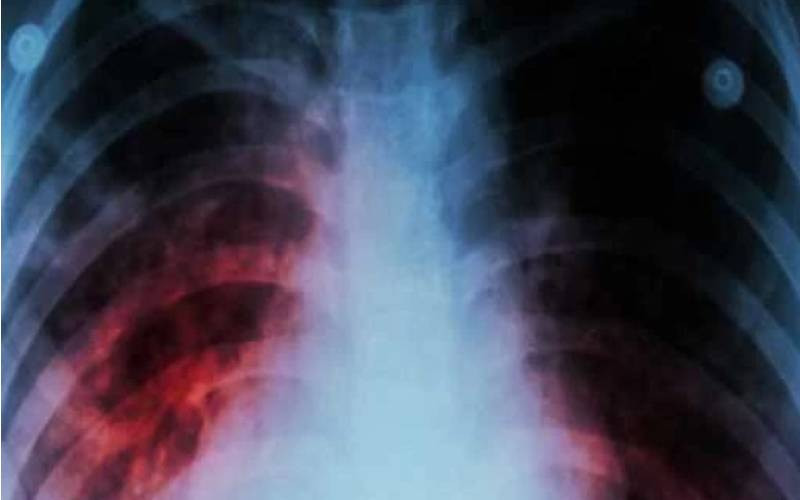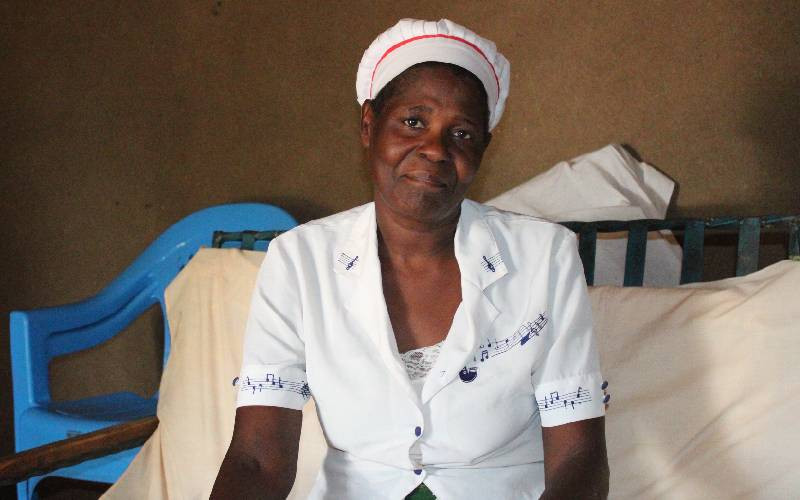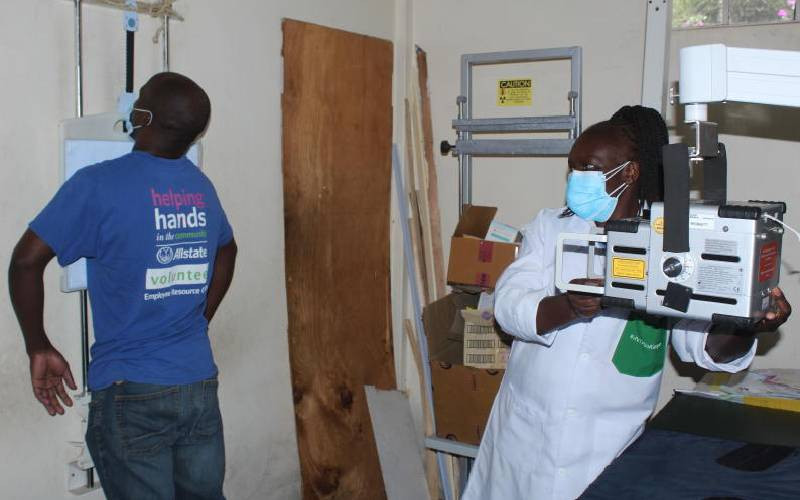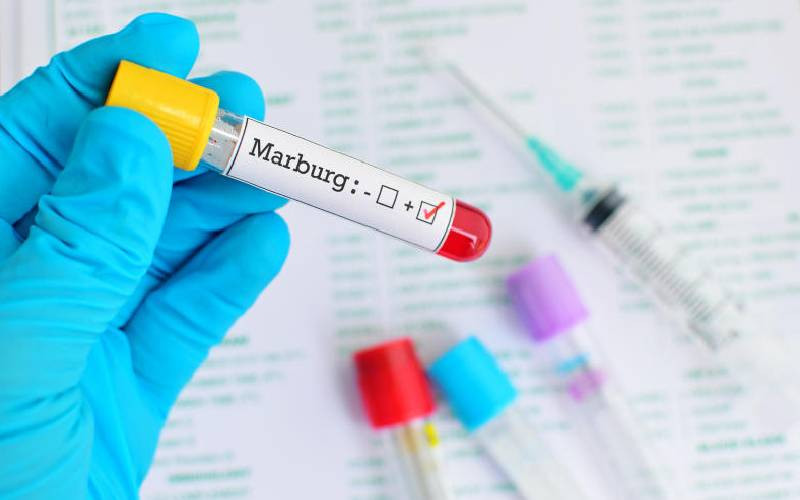
When 39-year-old Halima Yussuf from Mandera first felt a persistent lump in her left breast, accompanied by fatigue and unexplained weight loss, she chalked it up to stress.
Like many Kenyan women balancing work, family, and endless responsibilities, Halima quietly relegated her health to the back burner. It was only when symptoms worsened that a visit to the doctor delivered devastating news, she had stage 3 breast cancer.
Halima’s story mirrors a growing, unsettling reality in Kenya a silent epidemic of cancer that continues to ravage communities, strain households financially and emotionally, and expose critical gaps in the country’s healthcare system.
According to the National Cancer Institute of Kenya (NCI-K), five types of cancer breast, cervical, prostate, oesophageal, and colorectal account for more than half (52 per cent) of the 42,116 new cases reported annually in the country.
This translates to over 21,900 Kenyans being diagnosed with just these five types of cancer each year.
Heavier burden
Breast and cervical cancers disproportionately affect women, while prostate cancer exclusively affects men. On the other hand, colorectal and oesophageal cancers cut across both genders, reflecting a broader demographic vulnerability.
“These figures are not merely statistics, each one represents a real person: a mother, a father, a sister, a brother. Cancer is not simply a health issue; it is a socio‑economic crisis,” explains Dr Hassan Ibrahim, an oncologist and pharmacist based in Mandera, who interacts closely with cancer patients throughout their screening and chemotherapy journeys.
The data underscores the gendered nature of cancer in Kenya. Women bear a heavier burden, with breast and cervical cancers accounting for most female diagnoses. For each woman diagnosed, families are left wrestling with trauma and financial hardship.
“I had to stop working to care for my wife after her cervical cancer diagnosis. We sold our piece of land to pay for chemotherapy, and it still wasn’t enough. Now we rely on well‑wishers,” recounts Hussein Abdi, a father of four from Wajir.
For men, prostate cancer remains a major concern, often diagnosed too late due to lack of awareness and stigma associated with screening procedures. Many men shy away from testing, fearing the implications of a positive diagnosis. This cultural reluctance results in late-stage detection when treatment options are limited and outcomes poor.
Colorectal and oesophageal cancers, which impact both men and women, often go unnoticed until it is too late. Symptoms are vague such as digestive discomfort or difficulty swallowing and frequently mistaken for less serious conditions.
Limited resources
While cancer is a global challenge, Kenya’s burden is amplified by limited access to early screening, late diagnosis and inadequate treatment infrastructure. Public hospitals are often unequipped to manage cancer cases, and private treatment remains financially out of reach for most.
“I had to travel from my village to Nairobi every fortnight for chemotherapy. Each trip cost over Sh8,000, excluding treatment costs,” says Adan Mohammed, currently battling oesophageal cancer.
“I considered stopping treatment, not because I wanted to die, but because I didn’t want to leave my children in debt,” he adds.
Kenya has only a handful of radiotherapy machines nationwide. According to the Ministry of Health, Kenyatta National Hospital and a few regional centres carry the bulk of the cancer patient load, leading to months-long wait times for treatment.
Experts estimate that up to 40 per cent of cancer cases in Kenya could be prevented through early screening and lifestyle changes. Yet, lack of awareness, fear and cultural myths persist.
In many rural areas, cancer is still viewed as a curse or death sentence, deterring people from seeking timely medical attention. Some patients even turn to traditional healers in lieu of hospitals.
“There is a pressing need for cancer education, particularly at grassroots level. Women must understand the importance of breast self‑examinations and Pap smears, and men must learn about prostate health,” urges Dr Hassan.
Vaccination is another powerful yet underutilised tool. The HPV vaccine, which can prevent most cervical cancer cases, is available in Kenya—but uptake remains low due to misinformation and religious resistance.
Although the government has introduced the National Cancer Control Strategy and rolled out Universal Health Coverage (UHC), implementation remains uneven. Public funding for cancer treatment is limited, and many county hospitals lack oncologists and diagnostic equipment.
The establishment of regional cancer centres in counties, such as Kisii, Mandera and Mombasa is an encouraging step, but these facilities are often underfunded or understaffed.
The Cancer Prevention and Control Act, intended to streamline services and promote early detection, has not yet been fully enacted.
“We need to prioritise cancer the same way we did HIV. We must see mass awareness campaigns, subsidised treatment and mobile screening clinics in every county,” says a cancer survivor.
Ripple effects
Cancer’s ripple effects extend far beyond patients. Children often drop out of school to care for sick parents. Families plunge into poverty due to treatment costs. Marriages collapse under emotional and financial strain. The burden is not only biological—it is psychological, social and economic.
Halima Yussuf, now undergoing a mastectomy and several rounds of chemotherapy, is using her survival to educate others. She speaks at gatherings and women’s groups to advocate for early detection.
“If I had sought help sooner, I might not have lost my breast. But I’m alive, and now I tell every woman I meet: don’t wait. Your life is worth fighting for,” she says, her tone quiet, but resolute.
Despite the overwhelming challenges, hope persists. Kenyan oncologists and survivors are driving policy change, improving infrastructure and fostering community education.
Private foundations are stepping in to fill gaps. Organisations, such as Faraja Cancer Support and the Kenya Network of Cancer Organisations offer counselling, financial aid and awareness campaigns.
Meanwhile, survivors are emerging as advocates, humanising the disease and dismantling stigma. “We are not just patients. We are fighters. And with the right support, we can beat cancer,” declares one survivor.
Cancer is no longer a disease of the wealthy or the elderly, it is a national emergency, affecting households across all social classes and age groups.
The NCI‑K statistics are a wake‑up call. Breast, cervical, prostate, oesophageal and colorectal cancers are exerting a devastating toll, yet much of this suffering is preventable with timely intervention.
It’s time for Kenya to rise to the challenge. From government investment to community education, from screening to treatment accessibility, every level of society has a role to play. Because behind every number is a name and behind every diagnosis is a family hoping for one more chance.
 The Standard Group Plc is a multi-media organization with investments in media
platforms spanning newspaper print
operations, television, radio broadcasting, digital and online services. The
Standard Group is recognized as a
leading multi-media house in Kenya with a key influence in matters of national
and international interest.
The Standard Group Plc is a multi-media organization with investments in media
platforms spanning newspaper print
operations, television, radio broadcasting, digital and online services. The
Standard Group is recognized as a
leading multi-media house in Kenya with a key influence in matters of national
and international interest.

